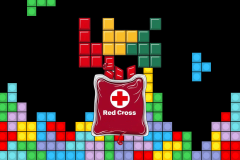Long-term chronic medical conditions are a fact of American life, and they seem to receive only a small fraction of the attention and care they’re due. It’s estimated that some 157 million Americans suffer from chronic conditions, representing well over 40% of the population. That number is only going to go up in the immediate future, meaning that new efforts are needed to help people cope.
Four Companies Helping People With Chronic Care Issues
Thankfully, a number of businesses are currently working on vital solutions. No one firm will be able to solve every case — it will take an entire industry’s worth of effort in order to effect the necessary changes. Here are four companies leading the charge:
1. Navigating Cancer
Anyone who’s undergone treatment for cancer or knows someone who has done so is aware that care is a holistic process — it doesn’t start and stop at the hospital door. Navigating Cancer is a revolutionary platform that acknowledges this reality by giving doctors the tools they need to connect with and monitor their patients.
Systems like Navigating Cancer make it possible for medical providers to fine-tune the care process to exactly what each patient needs. Regular contact between patient and doctor, even when virtual, means that no crucial detail goes unmissed or unreported. When it comes to developing an effective regime of care for a chronic illness, having all the details in the hands of your physician can make all the difference.
2. Cardiac RMS
Cancer isn’t the only chronic condition for which remote monitoring is a much-needed solution. For those at increased risk of cardiac incidents or those who themselves have experienced a heart attack, the threat is always there. Cardiac RMS can provide much-needed peace of mind in situations like these.
Heart monitoring devices such as pacemakers, ICDs, and implantable loop recorders can be linked to Cardiac RMS. In turn, the recorder interprets the data and sends it on to your clinic. This means that Cardiac RMS — and therefore your doctor as well — will often be able to tell when something is going awry. Additionally, they can identify an issue more quickly than you can. When it comes to the seriousness of long-term cardiac problems, that kind of monitoring system is a must.
3. Noom
Not all chronic conditions are as dire as heart disease or cancer. But, they still require their own solutions all the same. Long-term “lifestyle” conditions, such as obesity or sedentarism, can have serious consequences if left unaddressed for too long. While there are plenty of diet and activity programs out there, few are as focused on long-term results as Noom.
Noom doesn’t take a singular approach to weight loss and control. Instead, it helps users adjust their lifestyle and habits towards meaningful health goals. Noom assesses each user’s health profile and uses this information to label certain foods appropriately and encourage beneficial behaviors. This ensures that whatever weight comes off ultimately stays off, turning chronic problems into distant memories.
4. Endotronix
Endotronix is a remote heart health monitoring system similar to Cardiac RMS. The biggest difference here is that Endotronix has its own Pulmonary Artery Pressure Sensor for keeping close track of patients’ state. The sensor sends data simultaneously both to the patient app and the clinic. This method allows both you and your doctor to stay fully abreast of what’s going on in your chest at any given time.
Chronic treatments will look different for different chronic issues, but the principle is always the same: get people the help they need to live with their illnesses. More and more companies are seeking to enter this space. Consequently, the more that do, the better off patients will be in the long run.
Image Credit: tima miroshnichenko; pexels; thank you!


















